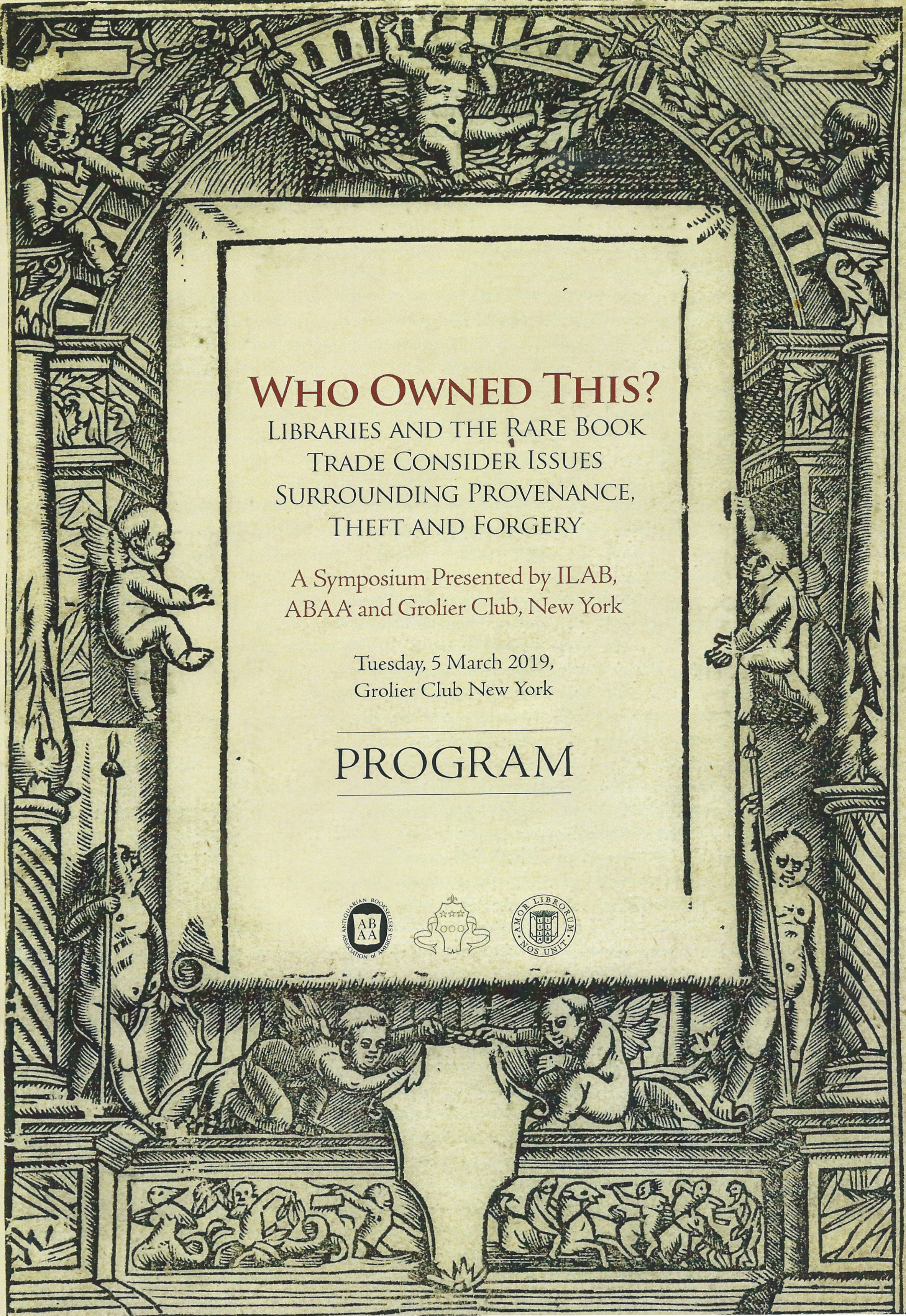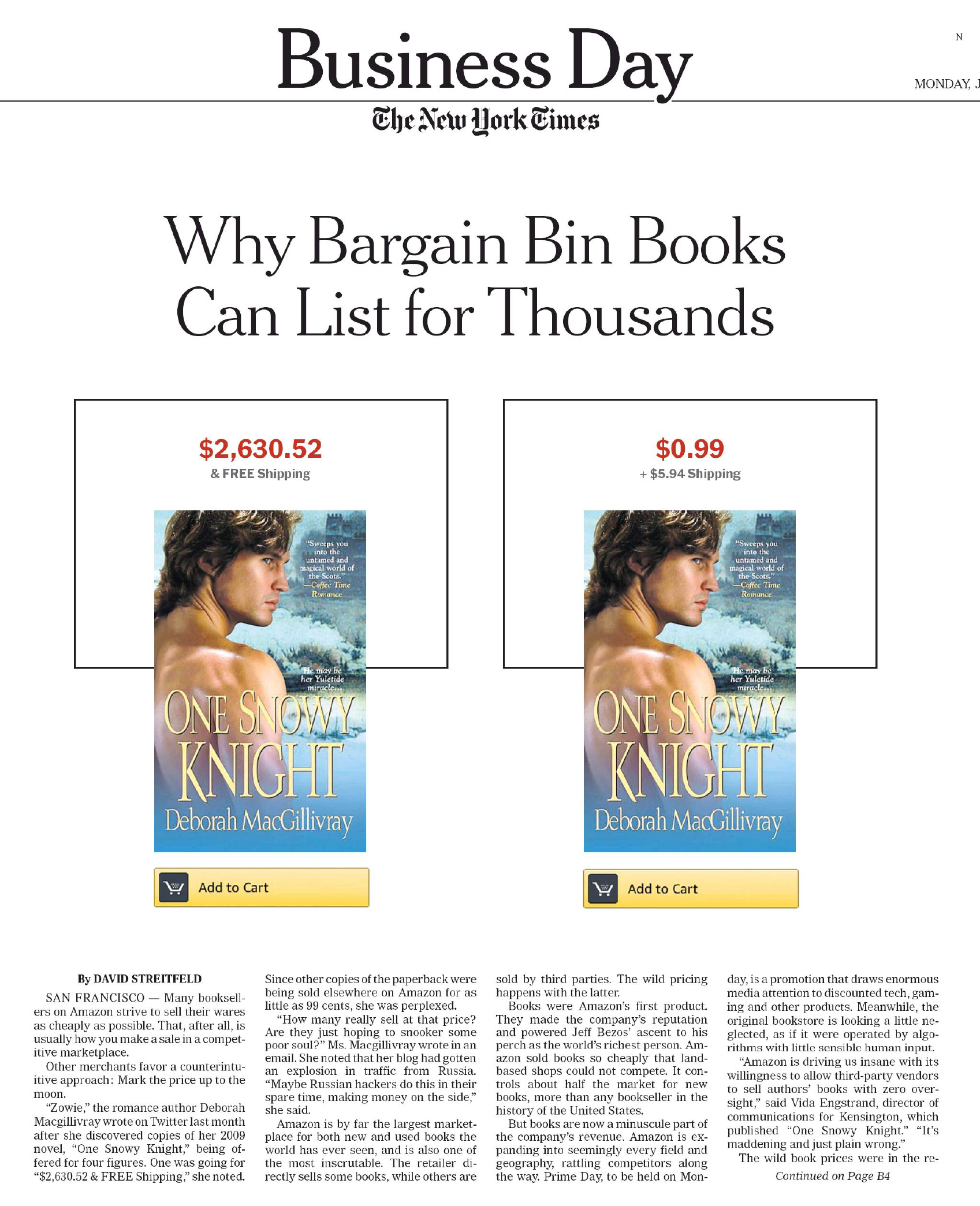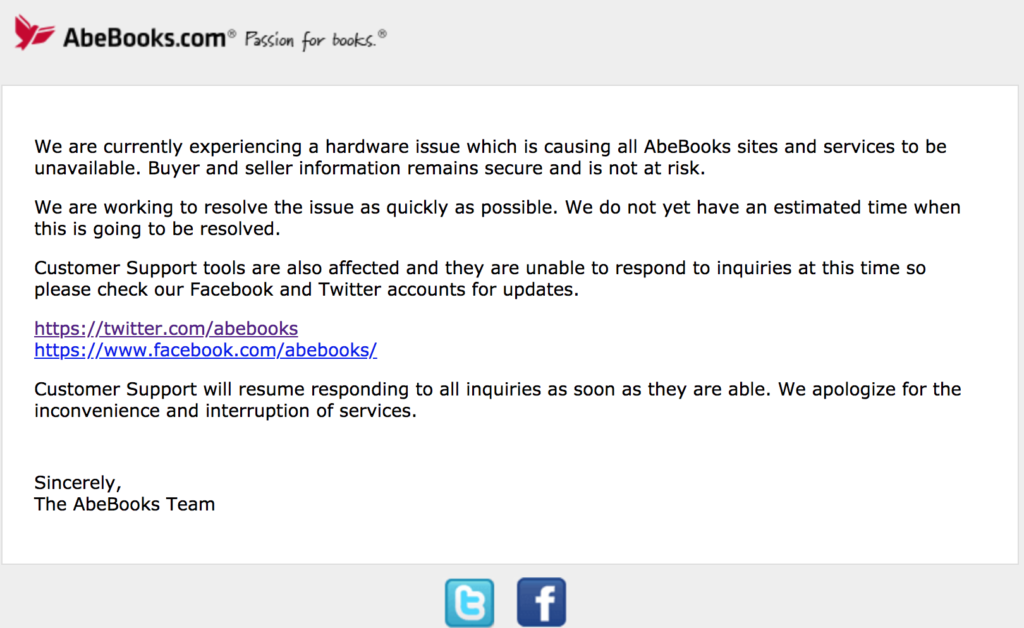I think most people now take it for granted that finding an old book isn’t very hard. Of course, this wasn’t always the case. There was a time, not too long ago, when finding even a relatively ordinary out-of-print book print involved a fair amount of effort and patience. Having already blogged about that HERE I will resist the temptation to rattle on about that subject again.
Things are very different now. If you want to find an old book today it is all very simple: just fill out a form on viaLibri, click the Search button, and then scroll through all the results. If the book you want is being offered for sale almost anywhere on the internet then our comprehensive search engine will almost surely find it for you. And you are likely to find many copies to choose from. Even on a site like viaLibri, which specifically targets the interests of collectors, the median number of results returned from each search is 14. In most cases the only challenge is deciding which copy you want to buy.
But not always. Even with the huge ocean of the internet to fish in it is also possible to search for a book and have nothing show up in the results. Although unusual, it does sometime happen that there are no copies for sale. That is when we can start talking about something being rare.
‘Rare’ is a word we have lately learned to use only with some trepidation. It was subject to much abuse in the days before online bookselling when the primary tool of measurement was nothing more certain than the experience and expertise of whoever was describing the book. Needless to say, the reliability of personal expertise can be quiet variable, and when mistaken claims of rarity have made their way into reference works and respectable bookseller catalogues it is inevitable that they will be repeated elsewhere and eventually take on the appearance of fact – all of which was possible because, for most of the books that might be encountered in the market place, there was usually no objective reference to validate or refute a claim of rarity.
Then, of course, the internet came along, and with it the perception of rarity ceased to be a matter of judgement and experience and became, instead, a simple, measurable fact. A book for which multiple copies were available online could no longer be considered rare and no bibliographic authority could make it otherwise. To much consternation and dismay, many books long regarded as “rare” were found to be otherwise. As a result, a new simpler measure established itself:
No-copies-for-sale-online = RARE
A simplistic formula for sure, but its simplicity and empirical objectivity trumped any other considerations, at least as far as the marketplace was concerned; and it was a proof available to all.
Using that criteria it turns out that a significant number of the books that people want cannot, at this moment, be found for sale online. A check in the search log for viaLibri shows that roughly 1 search in 5 returns an empty result. Moreover, while it turns out that many of the books once thought to be rare are actually not so, it has also become apparent that there are many more genuinely rare books than might previously have been imagined. When they surface they are compared with what is already for sale online. If there are no other copies found then they are far more likely to receive a careful examination than they would have in a less connected world.
At the top of this post I alluded to how easy the internet has made it to find copies of most out-of-print books. One might suppose that rare books would be different and that if the book you wanted was not currently available for sale online then there would not be much that the viaLibri could do to help you find it. But that isn’t necessarily so.
If a book is not available today that doesn’t mean that it couldn’t appear tomorrow, or next week, or six months from now. But it also doesn’t mean you have to keep coming back every day to look for it. That is what we created Libribot to do. Once your search criteria have been saved in the Wants Manager you can sit back and relax. Our persistent search bot will then start to work checking daily for new listings of the book you want. When it finds one it will send you an email with a direct link to the website where the book is being offered for sale.
You may think that you are doomed to wait a very long time if the book you are looking for is “rare” and not currently available online, but that isn’t necessarily true. It is often the case that a book cannot be found for the simple reason that the demand for it greatly exceeds the supply. In absolute terms it may not be considered rare, but in practical terms it will effectively be so. When a book of this sort appears on the market it doesn’t take long for it to be noticed, sold and to disappear. If you really want it then you will need to move fast and buy it before someone else. Libribot can help make sure you are not too late.
Even if the book is really not that rare, it may be that all the copies you find online are more expensive than what you want to pay. In that case you might resign yourself to the idea that the book is beyond your reach. You shouldn’t give up so easily. The copies you find but can’t afford may just be over-priced. They may belong to patient sellers who hope some day to get the maximum price possible. While they are waiting, however, other sellers may come along who, in return for a quick sale, will be happy to let their copy go more reasonably. All you need to do is tell Libribot and it will quickly go to work and report to you when it finds a copy with a more agreeable price. And if you tell Libribot the maximum you are prepared to pay it will continue searching for your book without bothering you about copies that don’t fit your budget.
All of which is meant to show you that if you aren’t already letting Libribot help you find books then maybe you should give it a try. Times have changed and finding rare books may now be much easier than you think.
 The 8 speakers spoke on various subjects relating to the difficult but timely problems faced by booksellers and librarians in connection with provenance, theft and forgery. I was honored by being assigned the closing position and used it to consider these subjects with a particular regard to the use of databases to protect from theft, recover stolen books and establish provenance. At the end I ventured a few general speculations about how the database technologies of the future may be even more useful for these purposes, including a preview of some of the things that viaLibri will be doing to make use of these technologies. The title of my paper was: “
The 8 speakers spoke on various subjects relating to the difficult but timely problems faced by booksellers and librarians in connection with provenance, theft and forgery. I was honored by being assigned the closing position and used it to consider these subjects with a particular regard to the use of databases to protect from theft, recover stolen books and establish provenance. At the end I ventured a few general speculations about how the database technologies of the future may be even more useful for these purposes, including a preview of some of the things that viaLibri will be doing to make use of these technologies. The title of my paper was: “


 This year, however, I will be accompanied by Alasdair North, our CTO and the digital magician behind the viaLibri curtain.
This year, however, I will be accompanied by Alasdair North, our CTO and the digital magician behind the viaLibri curtain.